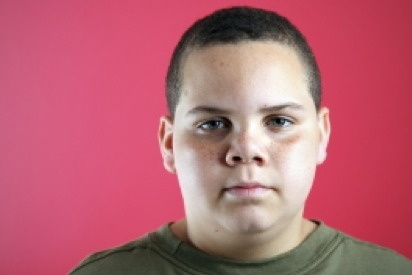I am feeling
Anyone who has tried to drop an unwanted habit can tell you it takes time and motivation. It's like going to the gym to get in shape or trying to stop biting your nails. Going through some of the exercises might bring up sad or anxious feelings, but we stick with you and help you get through those moments. The more you work at it, the more you can manage your mood to feel better.
Click any of the headings on the tabs below that describe how you feel for tips on how to continue progressing in the CURB program.


Sometimes we feel we are in danger. We can feel our heart racing, hands sweating and maybe a sense of panic, too. Usually this comes when we feel threatened somehow. This can be someone or something that we feel unsafe around, or this could even be a social situation. For example, somebody threatens you on the way home from school, or you think your Mom will be “real mad” about your grades. In both cases, you are too “afraid” or “scared” to go home. If you find yourself feeling scared, find someone you trust to talk to. If you can’t think of anyone, you can call a teen-helpline at 800-852-8336 and talk to them about what you’re going through. If there is an emergency and you’re concerned for your safety, you can always call an emergency number (911) for help.

There are two general reasons why we feel sad: we either feel sad because we had something important to us and lost it, or because of something we wish we had but could not have. The best way to know what makes you sad and then fix it is to take time and figure it out. Working on Project CURB, especially the CBT section can help you with this process. If you feel this is too hard to handle, take a break and then return when you're ready. Talk to a friend or family if you need help.

It helps to think of being bored in terms of the opposite of “engagement”. If you have too few things to do, you'll feel bored. So if you're bored, you may just have not enough to do in Project CURB's modules. Boredom happens, in other words, when we stop taking on challenges. Don't worry. If you take a break, then come back and move on to another part of a module, you can come back later to work on something else. You can also dig into the program deeper; think about how the program relates to you and your life. Don't get discouraged; remember your goals and the ways you could help them with skills from the CURB program.

Worrying about something or dwelling on it can be helpful at first because worrying can help you figure out what's making you upset or what you need. But worrying by itself can't make anything better. If you find that you're worrying a lot about something, ask yourself, “What can I do to solve this problem?” If you think about active engagement in problem-solving, your mood can improve and may be able to actually get past what it is that worries you. It can also help to talk to a friend or someone in your family about what solutions you can come up with to the problem.

Happiness involves positive feelings, such as pleasure or excitement. Happiness is brought on by positive actions such as engagement in family, school, team or romantic relationships as well as involvement in some bigger cause you believe in that could be religious or political, for example. However, sometimes we can switch from feeling overly happy to feeling a great deal of anger and showing very unfriendly behavior. If you experience these sudden changes from being very happy and hopeful to being very sad and angry then you should talk to someone you trust, like your doctor, or a friend.

Someone experiencing this kind of feeling, known as “flat affect” has a greatly reduced or lack of emotional expression that would usually be shown in response to a situation or someone else's behavior. Thinking of flat affect is easier if you think of it as not getting happy or sad about something that made you happy or sad before, such as getting good grades at school or breaking up with your best friend or romantic partner. Such lack of emotions can be a sign of trouble that leads to the blues and mood disorders. You should talk to a friend, a doctor, or someone you can trust about this condition.
Drinking alcohol or using illegal drugs can sometimes seem like a good way to feel better or improve your mood. But in the long run, drugs and alcohol don't solve anything. They keep you from dealing with the underlying problems that can cause depression or down moods, and they can keep you from being clear about your feelings. If you’re struggling to end an addiction to drugs or alcohol, talk to a doctor so they can help you safely find a way out. There are lots of treatment locations for teenagers struggling with the same things you are. They can help you find better ways to cope!
If you're looking for ways to improve your mood, there are several methods that this program talks about, such as exercising or doing a pleasant activity with a friend, which can help without all the negative side effects of drinking or using drugs.